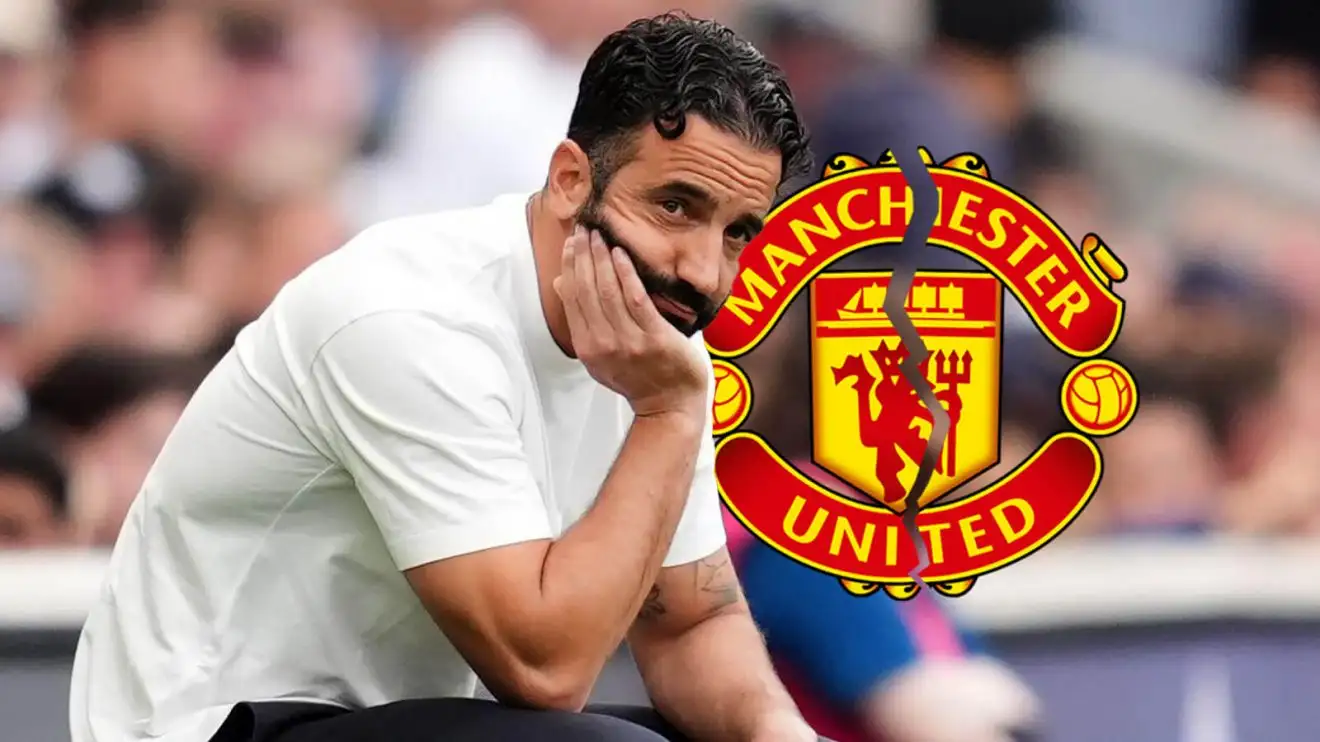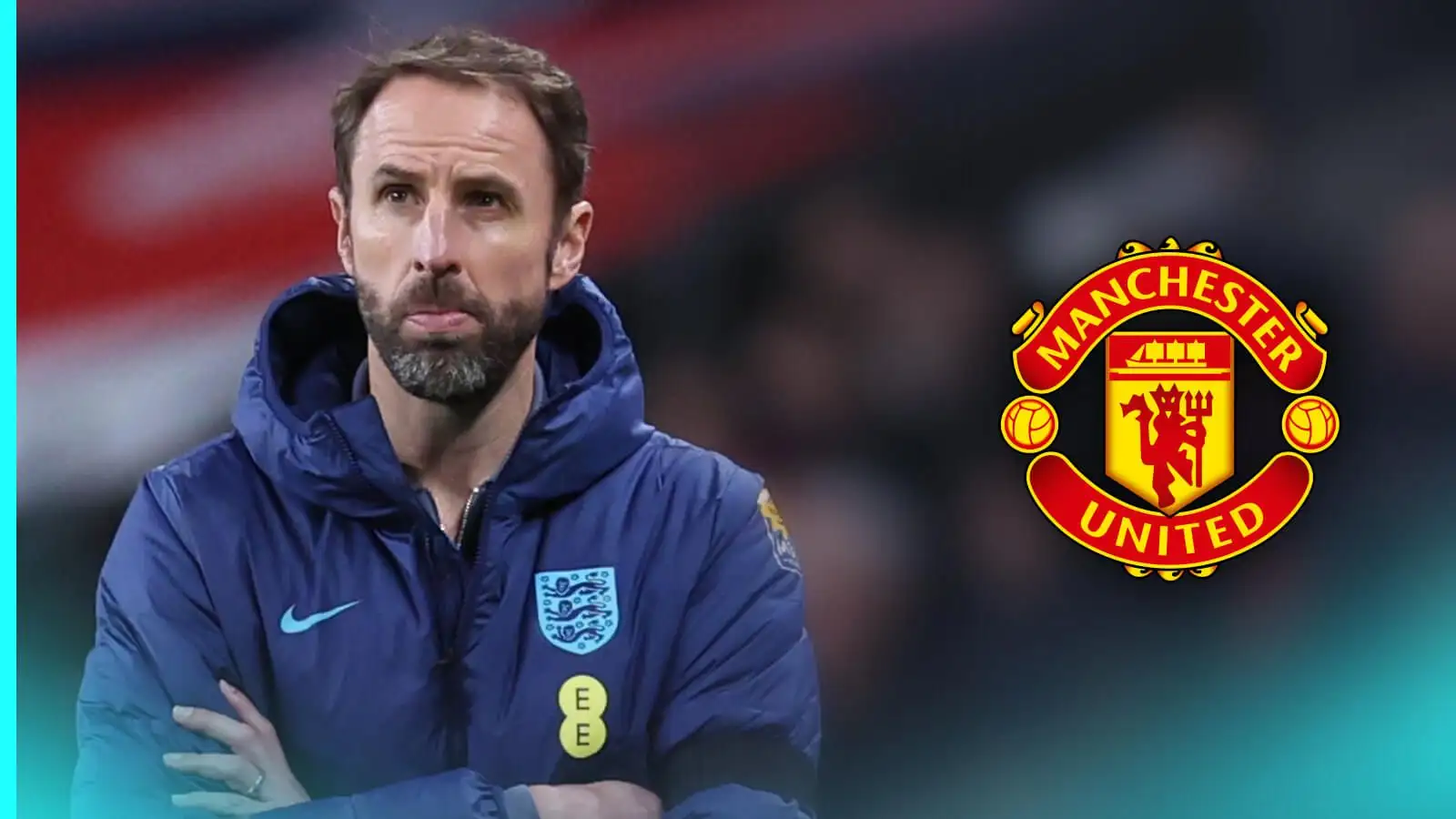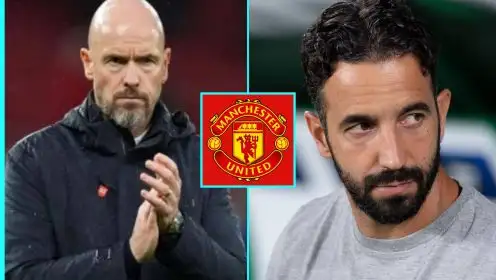Amorim next? Resignation reasons include transfer walkouts, Keane anger and no beachfront dwelling

While many might assume the end is nigh for a Manchester United manager after defeat to League Two Grimsby Town made it three games without a win to start a ‘clean slate’ season on the back of their worst campaign in living memory, INEOS’ adamance up to this point that they retain full faith in Ruben Amorim suggests the Portuguese boss may be closer to resigning than he is to being sacked.
As he rocked from side to side on the bench for the penalty shootout he certainly looked like a man who would rather be anywhere else, and after he reportedly had to be talked down from the ledge in January following a 3-1 home defeat to Brighton, when he told United bosses he was ‘prepared to resign’, there is once again a ‘feeling at the club that the head coach may resign unless results pick up’.
Premier League managers almost never resign – they’re either sacked or occasionally mutually consented to ensure a wedge of compensation to ease their exit. Only ten managers have handed in their resignation in the middle of a Premier League season this century…
Roy Hodgson (Crystal Palace)
Hodgson was on track to leave anyway after a run of two wins from 15 games combined with comments regarding “spoilt” fans to make his position untenable. But in the end it was his health which resulted in a more amicable parting of ways.
After he collapsed during a training session in February last year, leading Palace to cancel a press conference half an hour before it was due to take place, Hodgson announced soon after that he had “taken the decision to step aside so that the club can bring forward their plans for a new manager”. Oliver Glasner had already been lined up.
Dick Advocaat (Sunderland)
Having successfully led Sunderland to safety after inheriting Gus Poyet’s mess in March 2015, Advocaat signed a one-year contract extension at the end of the season after the Black Cat bosses persuaded him to put retirement on hold.
Four months and a winless start to the season later and the Dutchman revealed he would be stepping down as “the struggle against relegation is not my cup of tea”.
Advocaat continues to put retirement on hold – he’s now in charge of Curacao having held six other managerial positions since his departure from the Stadium of Light – but as chairman Ellis Short implied, there were no hard feelings: “It is also testament to his character that he has forgone any kind of a financial settlement, something which is very unusual in football.”
Harry Redknapp (QPR)
The “immediate knee surgery” Redknapp cited as his reason for resigning in February 2015 may not have been quite such a pressing requirement had QPR not been staring relegation in the face on the back of seven games without a win.
“I haven’t got the hump, we haven’t had a row,” Redknapp insisted as reporters suggested an ulterior motive for his departure might have been their only winter transfer window additions being Ryan Manning on a free and Mauro Zarate on loan.
Two months after his departure, with his knee no doubt in tip top shape by that point, Redknapp claiming he “didn’t know who was on my side at the end and who wasn’t”, while the constant speculation linking Tim Sherwood with the job “got on my nerves”. Fair enough, really.
Roy Keane (Sunderland)
A man who should need no reminding what a particular person’s job is walked away from his own after losing six of his last seven games as Sunderland manager.
“Roy Keane hasn’t been sacked because we’ve a bad team; he’s resigning because we’ve a good team he feels he can’t bring any further,” said Black Cats chairman Niall Quinn after reportedly first being informed of his compatriot’s decision via text, then later through a slightly more official fax.
Keane hinted that his relationship with new owner Ellis Short may have played the most significant role in his decision to leave the club more than a decade later.
“I didn’t like the way he used to speak to me. The tone of his voice,” Keane said. “I shouldn’t be spoken down to. I should only be spoken down to by my dad.”
I’m off to tell my daughter she has no stake in society and to shine my shoes until I can see my face in them.
MORE ON RUBEN AMORIM FROM F365
👉 Amorim turned Garnacho from a Man Utd untouchable into a pariah and Mainoo is next
👉 Ranking nine possible next Man Utd managers with Amorim sack ‘imminent’
👉 Does Ruben Amorim want to be sacked by Manchester United?
Kevin Keegan (Newcastle United)
After first admitting defeat in January 1997 having endured Sir Alex Ferguson going to Middlesbrough and getting something nine months before, Keegan’s return to St James’ Park 11 years later was ill-advised under the ownership of Mike Ashley and the executive directorship of Dennis Wise, who was calling the transfer shots.
Two transfers in particular infuriated the manager, who lasted won seven wins in 22 games before declaring upon his departure: “A manager must have the right to manage and that clubs should not impose upon any manager any player that he does not want.”
Alan Curbishley (West Ham)
“The selection of players is critical to the job of the manager and I had an agreement with the club that I alone would determine the composition of the squad,” Curbishley said. “However, the club continued to make significant player decisions without involving me. In the end such a breach of trust and confidence meant that I had no option but to leave.”
West Ham had won two of there opening three games but Curbs couldn’t stomach the club signing Xisco and Ignacio González while selling Anton Ferdinand and George McCartney.
The Hammers made the ill-advised decision to sue for breach of contract having clearly not read it themselves and ended up paying £2.2m instead as Curbishley had indeed negotiated a clause confirming he would have final say on transfers.
Sam Allardyce (Bolton)
Allardyce probably didn’t think he was destined to become the foremost top flight relegation firefighter when he tendered his resignation two games from the end of the season with Bolton in fifth after one of the longest and most Barclays managerial tenures in Premier League history.
It only became clear years later why he took such a step, when Allardyce gave an almost too Allardyce third-person account detailing the club’s lack of ambition.
“We needed to spend some money to give us an opportunity to finish in the Champions League and I was turned down flat and told that we don’t want to finish in the Champions League,” he said. “That was it. I went home and said to [my wife] Lynne, ‘That’s me finished’. She didn’t believe me, nobody believed but, believe you me, when Sam makes his mind up, there is no turning back.”
Jacques Santini (Tottenham)
Santini described his 13-game Tottenham stint as a “memorable” one which ended with three straight defeats, labouring over his “deep regret” at having to walk away because of “private issues in my personal life”, before later dispelling that myth while revealing his desire for a holiday rather than a high-profile Premier League job.
“They promised me a big apartment on the beach and I found myself 200m from the sea with a view of my neighbours”.
Gordon Strachan (Southampton)
Strachan kept Southampton up and then took them to eighth with an FA Cup final and resulting reward of European football before deciding in the following January that he would be leaving at the end of the season.
He managed just five more games before leaving early as “the situation has become increasingly difficult”.
John Gregory (Aston Villa)
On October 27, 2001, Aston Villa went top of the Premier League with a 3-2 win over Bolton.
As Gregory tells the story, he asked owner Doug Ellis “if I could enhance the team and the answer was ‘no’, which was fair enough”.
In early January, he said of resignation that “it’s a thing I’d never do. I wouldn’t turn my back on the lads because they are still a fantastic bunch to work for”.
On January 24, with Villa down in seventh and struggling, Gregory resigned and signalled his intention to take a “break” from management.
On January 30, he accepted a three-and-a-half-year contract at Derby.





